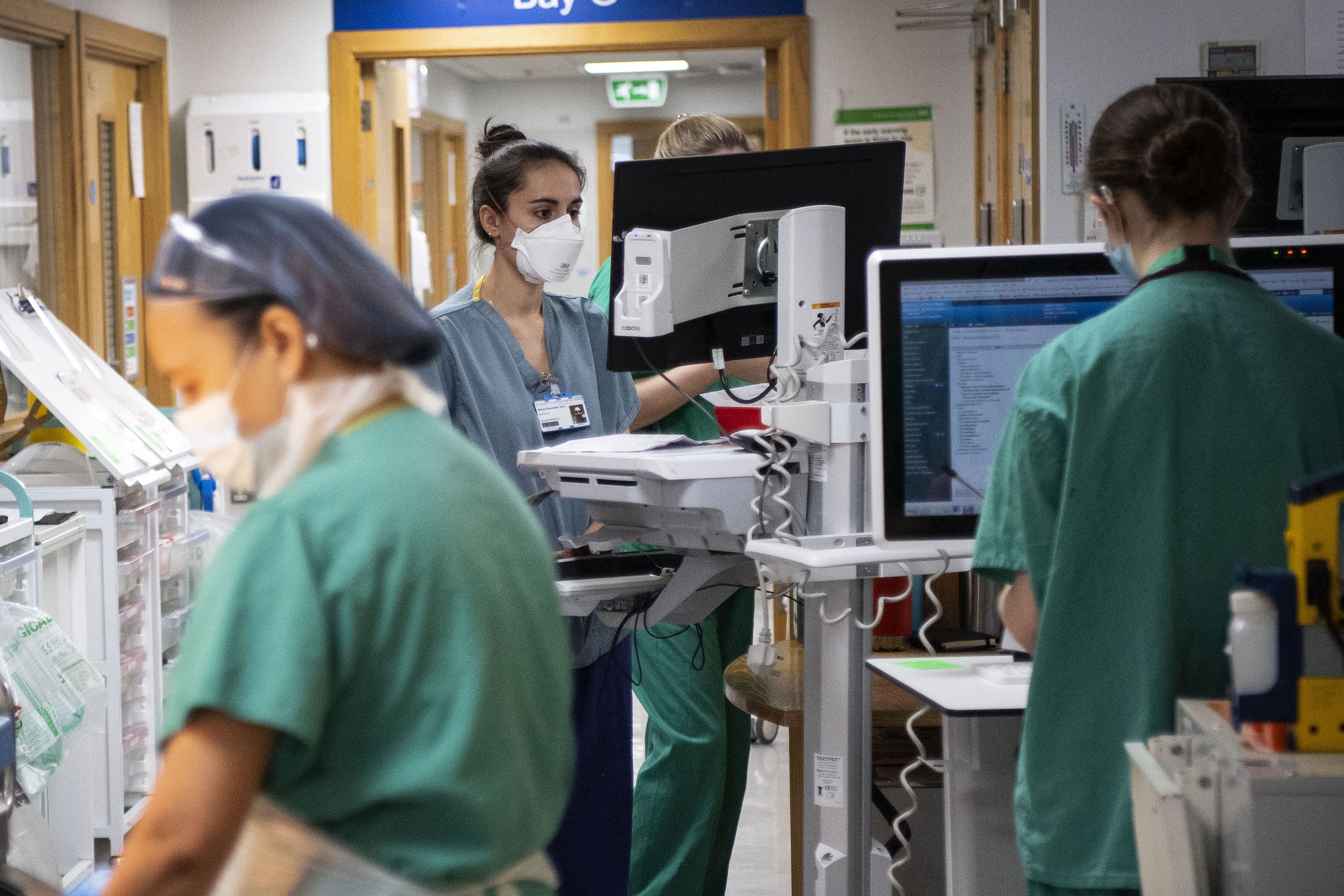Fixing the NHS will cure the economy as well as patients
For people like me, the prospect of a winter crisis for the NHS is chilling – but getting the UK’s workforce in shape is in all our interests, writes James Moore


Winter-time is, for some of us, becoming positively frightening; a season as a Stephen King novel.
The words of Dr Adrian Boyle, the UK’s most senior A&E doctor, profiled in The Independent today, explain why. Dr Boyle told this newspaper that plans drawn up to cope with NHS’s season crisis are “wholly insufficient” for the demands it faces. They allow for less than half of the beds needed to cope with the seasonal storm which traditionally comes along.
For those of us who, like me, have long term conditions, the prospect is chilling. We’re basically being told that we’re on our own – and better learn to swim fast because there mightn’t be a life raft if the ocean gets choppy.
Troublingly, that also applies to anyone to whom the word “senior” is applicable. And to their relatives who care about them. Which means most of us, because most of us have elderly relatives (only some of us may not have them for much longer if Dr Boyle is right. It might only take a fall).
Against that backdrop, it feels ever so slightly crass to talk about the economic impact of all this. But I’m afraid we’re in a place where morality too often comes second to financial imperatives, particularly with Britain’s politicians. So, if Dr Boyle can’t shake them out of their complacency, perhaps the Chartered Institute of Management (CMI) might?
The CMI regularly canvases its members for their opinion on a variety of subjects. In one of these monthly exercises it asked about their feelings about the NHS. The survey found that seven in ten of the nearly 1,200 who took part were worried about the ability of their team members to access NHS services. More than a quarter (28 per cent) said they were “very concerned”.
No wonder. It isn’t just people at the sharp end of A&E departments who are looking anxiously at the Met Office’s long term forecast in the knowledge that a cold snap could break them as well as their patients. Britain’s bosses are too.
Treatable conditions are being left unaddressed. When that happens, they can very easily take a wrong turn. Regular checkups required to keep people with chronic conditions healthy are subject to repeated cancellation. It can take months to get a replacement, if one is even offered. All this matters to employers. The persistent inability of their staff to access the NHS means absence due to ill health inevitably gets more common, time off sick extends for longer periods, operational efficiency and productivity take a hit.
Extend that across an organisation and promises made to customers/shareholders/business partners/service users/stakeholders start to get broken. Finding cover for absent staff, through temps, locums, supply teachers and what have you, is expensive and anything but easy in the current labour market, which remains notably tight despite Britain’s economic challenges.
An increasingly unhealthy workforce will inevitably have an impact on the economy. The growth we’re constantly told is desperately needed – the holy grail politicians fetishise – will be put at risk. Tackling the NHS’s current problems ought to be a priority, simply to remove people’s crippling fear. But the economic driver is just as potent.
As things stand, the pay rises that have been promised to NHS staff aren’t being fully funded. The inevitable consequence will be cutbacks, exacerbating the problems the service is experiencing.
Jeremy Hunt would have us believe that this is necessary under the badge of “fiscal discipline” and the “sound public finances” he was appointed to restore after the Liz Truss’ experiment blew up (she liked to talk about a lot about growth too).
The country must, we are told, live within its means. The NHS will have to embrace efficiency! It’s so easy to say that from an ivory tower. Not so easy in practice as patients, and their employers, will testify.
Here’s the thing: borrowing to invest is good borrowing if it yields a return. Borrowing to fix the NHS would do that because a healthy workforce is a productive workforce. Not to put too fine a point on it, it’s also lot easier to concentrate on your job if you’re not constantly worrying about your elderly relative being stuck on a trolley for 12 hours before a doctor can be found to treat them.
In refusing to heed the warning signs, Britain is cutting off its nose to spite its face. Personal tragedy will go hand in hand with economic blowback. Hunt can – and should – act to prevent this. It’s time for him to open up his wallet.






Join our commenting forum
Join thought-provoking conversations, follow other Independent readers and see their replies
Comments